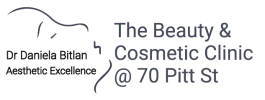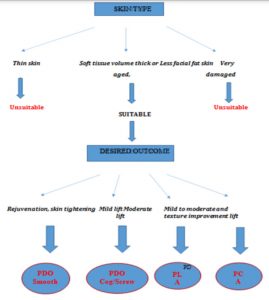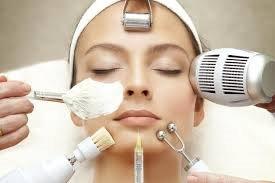
Sagging skin? As we age, we all start noticing it and most of us hate it. How to stop skin sagging and how to reverse the existing sag?
While, in my opinion it can be the only effective treatment for severe sagging, patients who have less sagging or wish to prevent further drop may consider less invasive and preventative treatments.
The thread lifting provide non-invasive skin rejuvenation to people who worry about the risks associated with the invasive lifting surgery.
I would like to clarify for our patients, what are the current options and the indications for facial sutures.
Currently there are THREE main types of dissolvable threads on the market:
· PDO Threads(Polydioxanone) such as Matrix
· PLA Threads(Polylactic Acid), Silhouette in our clinic
· PCA Threads (PolyCaproLactone), like APTOS.
PDO threads have been around the longest and are made of a synthetic biodegradable polymer that has been used in surgery for many years. PDO threads are absorbed into the body over 6 months by hydrolysis and work by triggering fibroblasts to produce more collagen in a targeted area.
There are three main types of PDO threads used:mono, cog and double screw threads.
Mono threads are smooth, without barbs. They mainly tighten the skin and provide a small amount of lift. Cog threads have barbs which hook onto the skin to provide support and lift the sagging tissue. Double Screw threads have one or two intertwined threads around the needle and provide good volume restoration to sunken areas of the skin.
The production of collagen around the threads and their barbs helps to restore volume and improves the skin texture and elasticity resulting in a natural aesthetics outcome.
After PDO threads, PLA threads were developed. They are made from a biocompatible polymer derived from lactic acid that has been used in many applications such as orthopaedic pins and sutures. PLA threads are resorbable and regenerate collagen over a longer time than PDO threads. PLA threads use cones to hook to the tissue and increase the volume of saggy areas therefore helping to restore shape to the facial area as well as providing a lift.
We have successfully used PLA threads in our practice (Silhouette threads)specially to lift the naso-labial, folds, jowls, and marionettes.
PCA threads are the newest threads and are bio-absorbable, monofilament suspension threads of synthetic origin (caprolactone). They work by regenerating collagen over a longer time than PDO and PLA threads. They leave behind a collagen structure that provides support for the skin, tightens the skin, and prevents it from sagging. Due to the fibrotic reaction caused by the threads, the lifting and stretching action will continue even after the threads have been resorbed. The process of thread breakdown produces molecules of small molecular weight which subsequently induce the production of collagen and Hyaluronic acid by the skin. The resulting skin is more moisturized, revitalized and firm with a long-lasting result.
How do we decide which thread to use for which patient? Ultimately, we look at the age of the patient, the treatment area and what we are trying to achieve.
PDO threads are better at repositioning and revitalizing tissue but not for providing lift so would be suited more to younger patients.
PLA threads provide some lifting, but again would be suitable for patients who only require a small amount of tissue lift.
PCA threads provide more lift and are more suitable for patients who require a small to moderate amount of lift.
| Thread Type | Rejuvenation | Mild Lift | Mild to Moderate Lift | Moderate Lift | Longevity |
| PDO Smooth | X | 6 months | |||
| PDO Cog/DS | X | X | 6 months | ||
| PLA | X | X | 12 months | ||
| PCA | X | X | 12-15 months |
We are excited to announce that starting from Nov 2021, we will be performing PDO threads in our clinic. This treatment comes as an addition to the Silhouette threads lifting that has been one of the most popular procedures, we have been performing for almost a decade.
APTOS threads are also being introduced.
To find out if you’re a suitable candidate for this treatment, please call us on 02 9233 3399 ext.2 or email us at [email protected] to schedule a consultation with one of our experienced practitioners.


